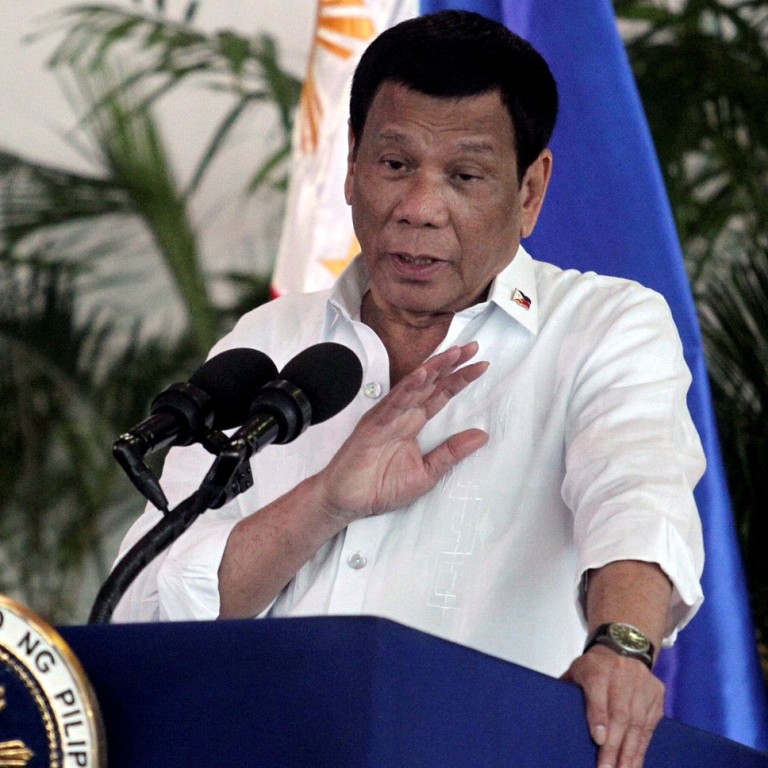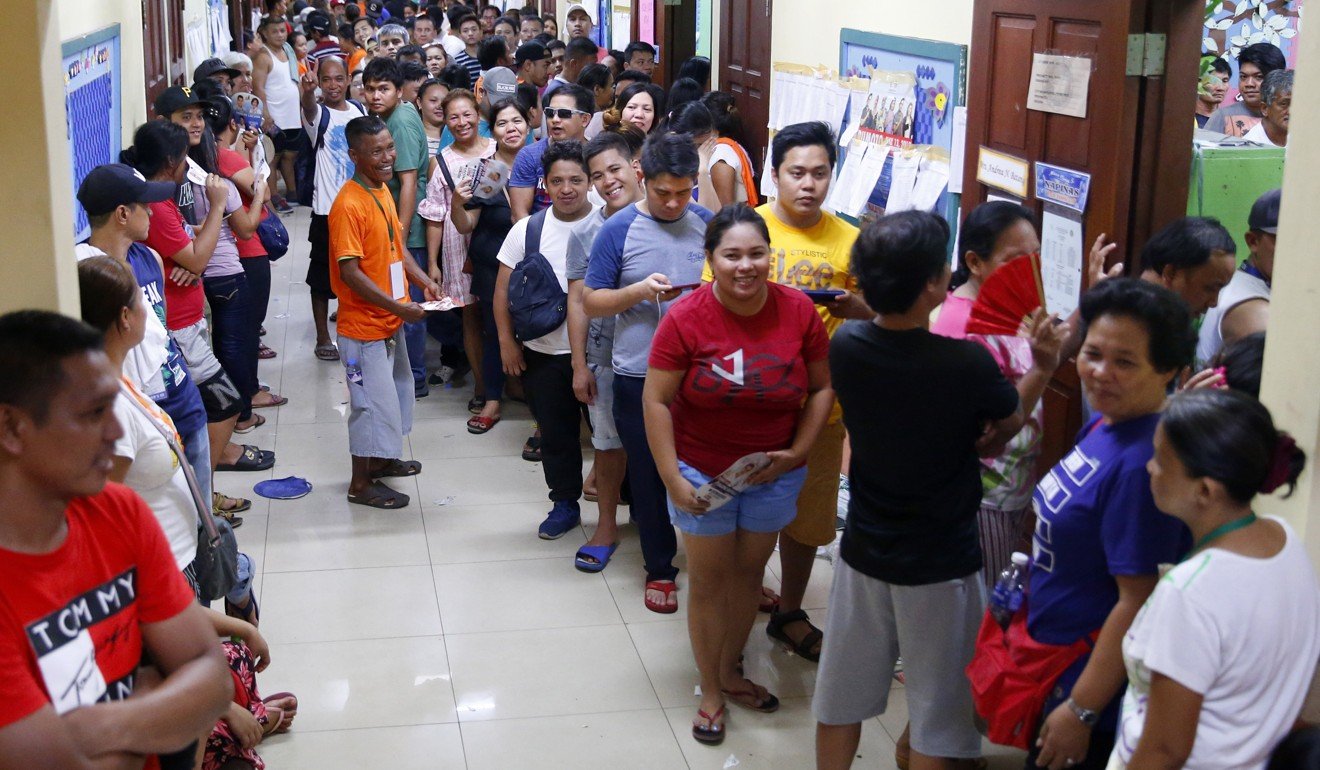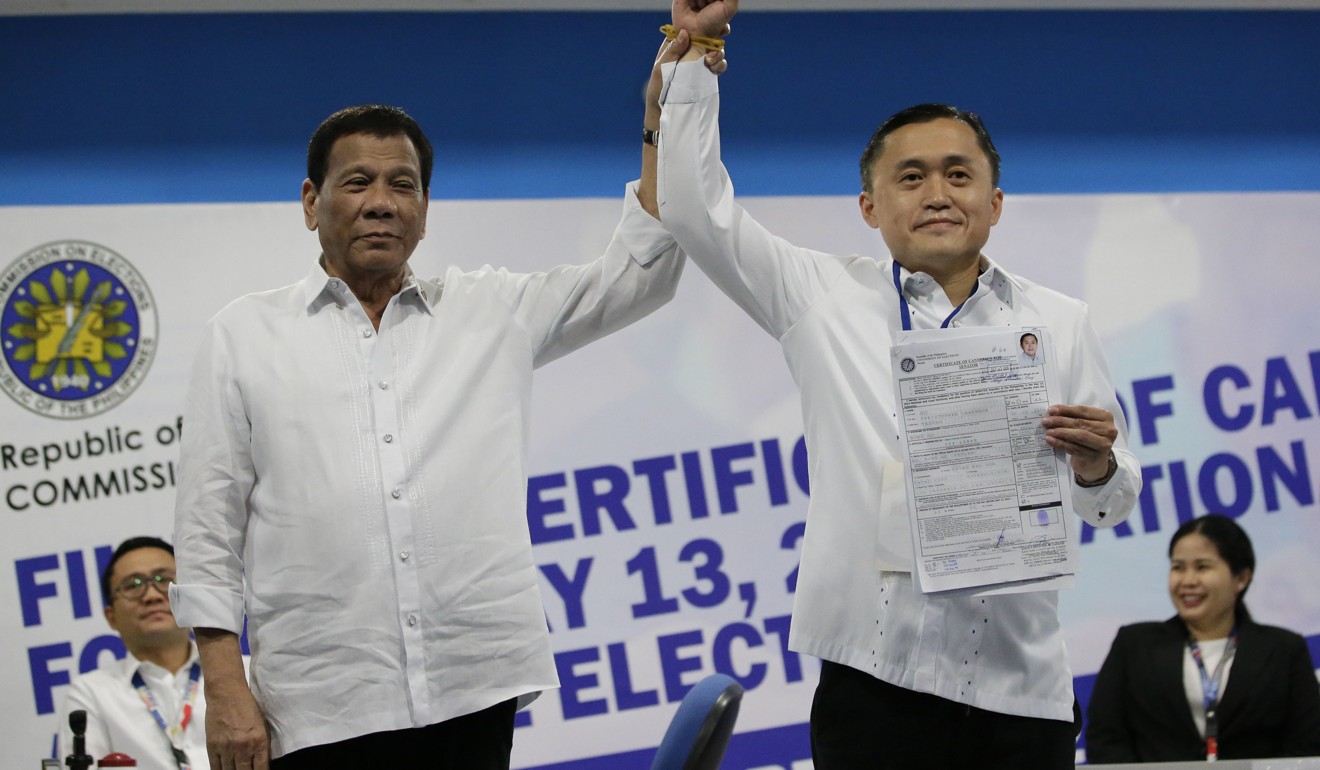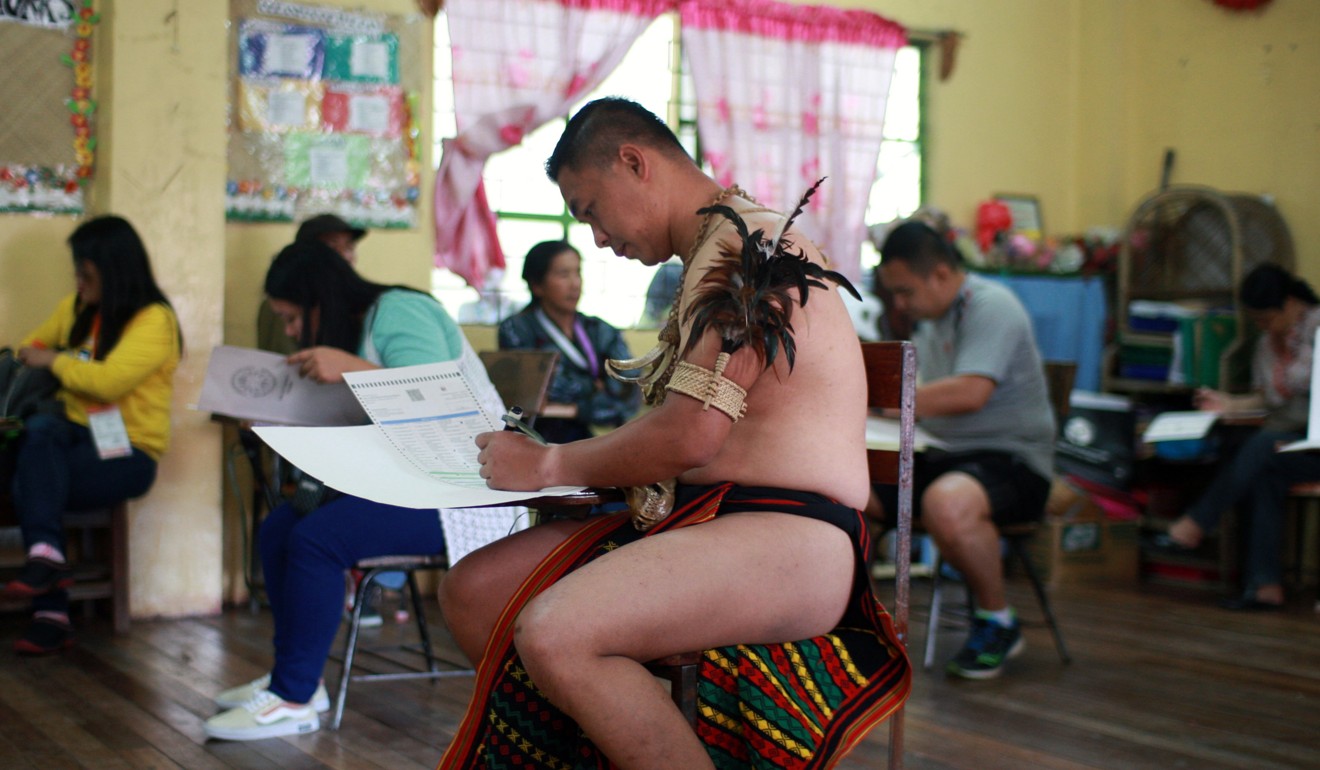
Why China was the big winner of the Philippines’ midterm elections
- With his power assured, Philippine President Rodrigo Duterte can fully consummate his pivot to China, shrugging off opposition criticism, Richard Heydarian writes
The early 20th century Italian thinker Antonio Gramsci observed that a “common error” among historians was their “inability to find the correct relation between what is organic and what is conjunctural”.
Seeing his home country transformed overnight after the second world war, Gramsci cautioned against mistaking fundamental shifts for historical accidents or ephemeral change.
Under Philippine President Rodrigo Duterte, the Southeast Asian country is undergoing an “organic” transformation, which will have far-reaching geopolitical ramifications, particularly for China.
In fact, Beijing was arguably the greatest winner of the Philippines’ May 13 midterm elections, which saw Duterte’s allies dominating 18,000 elected officers up for grabs.
Now firmly in power, Duterte can fully consummate his pivot to China, a strategy which faced stiff criticism from a now-enervated opposition.
Beijing has a direct stake in ensuring that Duterte and his allies remain in control for the foreseeable future, lest a hostile successor come in and upend the ongoing bilateral rapprochement.
There is one clear winner in Philippine elections: Duterte’s popularity
On the surface, the latest Philippine elections were just another exercise in an age-old ritual of democracy.
As the 19th century French thinker Jean-Baptiste Alphonse Karr once famously lamented: “The more things change, the more they stay the same (Plus ça change, plus c’est la même chose).”
Upon closer examination, however, we may have witnessed the beginning of an entirely new regime in the Southeast Asian country.
After all, the midterm elections were a de facto referendum on Duterte’s extremely controversial and disruptive, yet wildly popular, presidency.

While his name was not on the ballot, voters were effectively asked to affirm or reject the “protest vote” in 2016, which catapulted the former provincial mayor into the highest office of the Philippine Islands.
And the answer was a resounding endorsement by close to 50 million voters, who handed almost all elected offices to Duterte’s allies.
The opposition, including both liberal democrats and leftist-progressive elements, failed to secure even a single seat in the all-powerful Philippine Senate.

Now, Duterte’s allies control the upper chamber – a breeding ground for future presidents – which holds sway over public opinion, decides the fate of essential national legislation and has the power to ratify international agreements.
The president may now have sufficient influence over state institutions to push his vision for the country to its logical conclusion, raising concerns about the emergence in the Philippines of an authoritarian government.
If anything, critics fear that Duterte and his henchmen, including his long-time consigliere and now senator-elect, Bong Go, will engineer a new constitution that would perpetuate the dominance of the Philippine leader and/or his brand of governance and allies for the foreseeable future.
China must do more to convince Filipinos it is a ‘good neighbour’
Duterte’s improved position at home is music to China’s ears, considering the anti-Beijing electoral shocks that Maldives, Malaysia and Sri Lanka have sustained in recent years.
Back in 2010, the Philippines elected a liberal democratic leader, Benigno Aquino, who rejected his predecessor’s cosy ties with China and, over the years, became a leading critic of the Asian powerhouse.
Now, however, China may have found in the Philippines not only a temporary ally, but a friendly emerging regime.
Meantime, the biggest loser in the ongoing seismic shift in Philippine politics is the liberal-democratic opposition, which views China as a primary strategic threat.

Crucially, for the first time in memory, foreign policy was a major election issue in the Philippines. The opposition sought to leverage tensions in the South China Sea to question the wisdom of Duterte’s friendly relations with Beijing.
In particular, the opposition zoomed in on the months-long siege by an armada of Chinese paramilitary forces on Philippine-held islands in the South China Sea, which provoked anti-Beijing protests across the Southeast Asian country.
To reclaim Philippines, US must look beyond South China Sea
China’s mass harvesting of giant clams, which may have caused massive ecological damage to coral reefs, as well as reported harassment of Filipino fishermen in the Philippines-claimed Scarborough Shoal, provided further ammunition for the opposition’s critiques.
In another first, even prominent national celebrities joined the chorus of criticism aimed at Philippine officials, resulting in spirited social media exchanges with Foreign Secretary Teddy Locsin Jnr, over the government’s supposed obsequious behaviour towards China.
The opposition tried to portray Duterte and his allies as part of a so-called “Team China”, accusing them of being Beijing’s Manchurian candidates.
The strategy, however, failed in a country where only 6 per cent of the population sees foreign policy as an “urgent issue” and a majority (67 per cent) favour economic engagement rather than confrontation with China.
Philippines ‘prefers Chinese cash to US confusion’
Aware of the public’s opinion at home, Duterte doubled down on bilateral economic deals with China on the sidelines of the Second Belt and Road Forum in Beijing last month.
During his meetings with Chinese President Xi Jinping and Chinese Premier Li Keqiang, the Philippine leader secured from China US$148 million of development help and a US$12 billion investment package.
Relishing an imperial presidency, Duterte can now solidify the Philippines’ lurch into China’s sphere of influence, including expanded economic deals and, conceivably, in the near future, even defence agreements.
China couldn’t have asked for a better election result in Asia’s oldest democracy.
Richard Heydarian is a Manila-based academic and author

